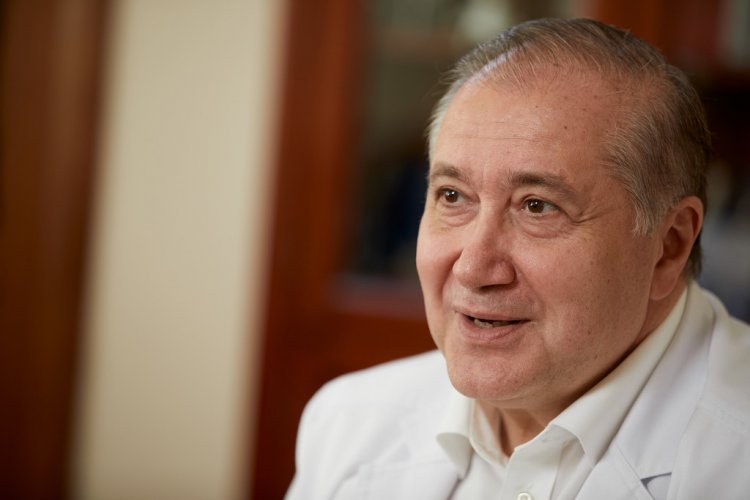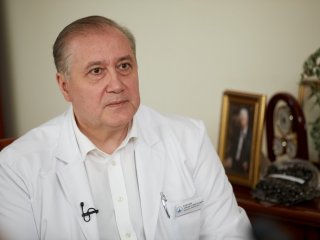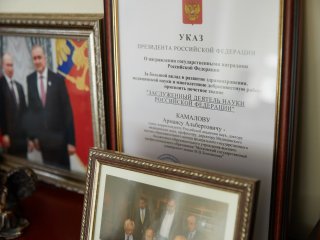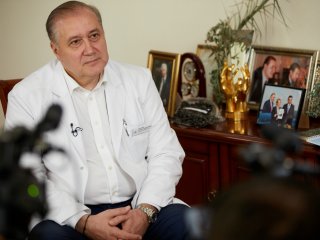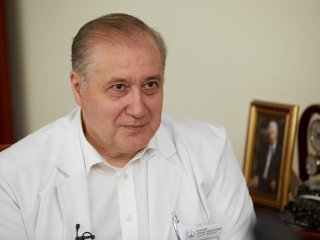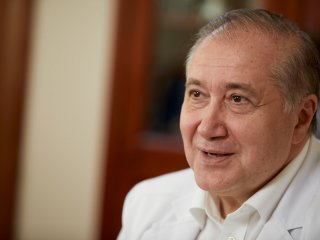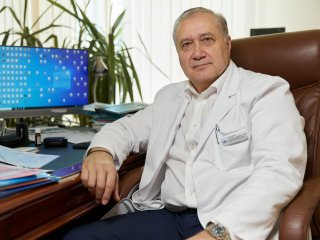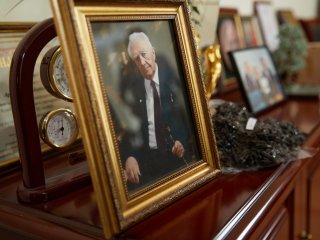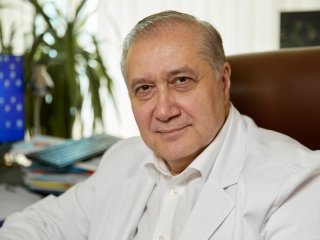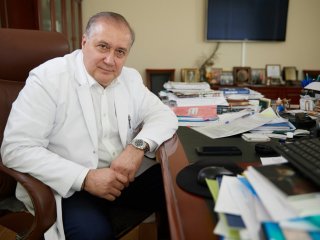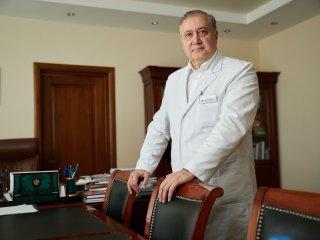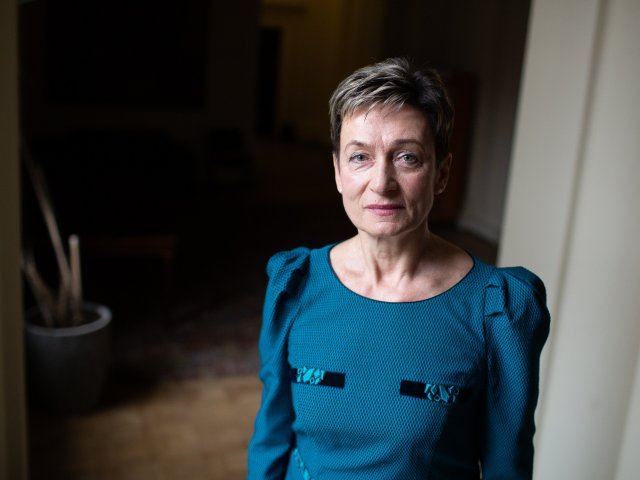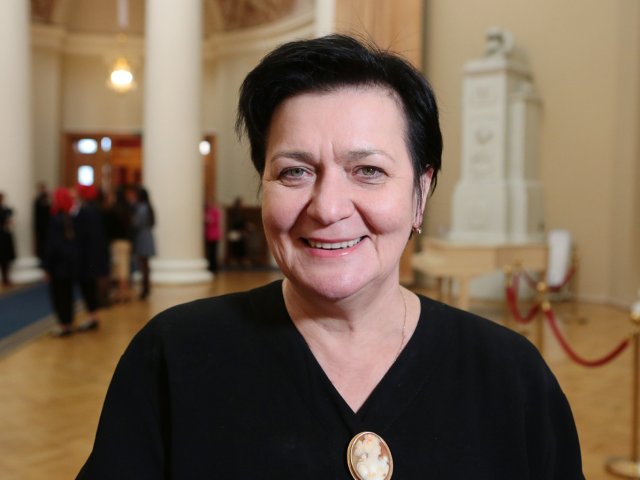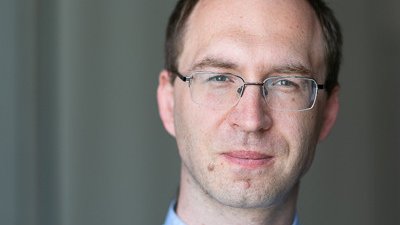The University Clinic of MSU is called the clinic of future for innovative methods. What is the secret of this miracle? This is the topic of our conversation with Academician Armais Albertovich Kamalov, director at Medical Research and Education Center University Clinic of Moscow State University (MSU), head of Urology and Andrology Department at the Fundamental Medicine Faculty of MSU.
Armais Albertovich, what makes the MSU Clinic exclusive? What unique things can it boast of?
The fact is that the University Clinic of MSU is actually the first medical institution under a classic university, and that speaks volume. Thanks to Rector of MSU V.A. Sadovnichy, the medical cluster under the university was created in stages. It is the group of research subdivisions, including our clinical center which carries out very serious mission. It lies in the fact that the scientists and physicians can choose the priorities of healthcare research that a doctor requires. It is often vice versa – there are methods, but it is not clear how to adjust them to the clinical activities of physicians. We have a different approach to this issue. We identify the priority areas on our own and solve the challenging and important problems that modern medicine face jointly with chemists, physicists and biologists.
We have a unique opportunity of carrying out fundamental and applied research at one institution with subsequent approbation of methods and instruments designed jointly with our colleagues from the Moscow State University. At the output, we have a ready-made product. This is what makes us different from the other healthcare institutions, including the federal ones which lack the said infrastructure.
You have mentioned the instruments designed within the walls of MSU. What kind of instruments are they? What purposes are they intended for?
Today, our activities are aimed at implementing national project having several important areas. First of all, I mean oncology and cardiology, which unfortunately account for a major share of deaths in our country and abroad, as well as disease prevention.
I think that the main problem of modern healthcare service is in primary care. In my point of view, the top priority lies in making it work a better as possible, optimize it.
They often quote the thesis about accessibility of medical care including the one in distant regions. With that in mind, we have created a hardware and software system Health Terminal jointly with physicists who render aid to us in implementing such projects. The system allows any person to get the data dealing with all vital parameters of their organism within just 10-15 minutes. You can put this terminal at any place. The machine is mobile, compact and can transfer information via Wi-Fi and phone link.
For areas having no access to communication means, our physicists created troposphere communication – a device for data transfer operational at a distance of 200 km. It may assist to solving global problems that our healthcare faces, as it allows for providing medical care in distant regions and monitoring the patient’ state of health on the background of treatment being used.
The opportunities that this hardware and software complex incorporates allow for accomplishing many tasks. As the system can boast of artificial intelligence, it is possible to detect the rhythm disturbances that the patient does not feel, while these disturbances are the most dangerous ones.
The second equally important mission is about oncology. Jointly with our scientists – biologist and chemists – we have et the goal of creating new markers for early diagnostics of cancer diseases. At present, we carry out the research for development of new markers intended for diagnosing bladder and prostate cancer. The fact is that the markers for bladder cancer are missing today, while the existing marker for early diagnostics of prostate tumors are unfortunately imperfect and flawed though being called specific.
Do you mean prostate-specific antigen?
Yes, and prostate-specific antigen as well, the one that is sensitive to not only prostate cancer, but other non-oncological diseases of this organ. Unfortunately, its detection range depends upon not only oncological disease, but inflammatory and other processes that take place in prostate. That is why the further work in this research area deals with creation of new markers. It is very important because detecting the disease in time is a key to successful treatment in oncology.
You are a urologist and have been specializing in this area of medicine for many years. Can you highlight these markers for oncological urology in detail? How will they work? What makes them more accurate that the existing ones?
These markers intended for bladder cancer are capable of not only detecting the disease at an early stage but identifying the time of possible relapse. The bladder cancer is unfortunately a recurrent disease. So, it is important not to miss the opportunity for starting treatment. This marker is based on studying the properties of telomerase and its mutations. The first data we have say about high efficacy and sensitivity of this method, though it is at the stage of applied research so far. Nevertheless, we hope that our research will result in a new product which is to become a reliable tool in the hands of medical practitioners.
In general, serious technological progress is observed in urology today. As I remember, our teachers would say: “Deep incision – great surgeon!”
Is it is vice versa now?
The tendency to minimally invasive method is in trend today. Who could imagine serious surgical operations, including the one for cancer, to be performed with the help of laparoscopic and endoscopic methods of treatment, as well as with the use of robotically assisted equipment? Naturally, it offers opportunities for making operation with higher precision and providing better functional results. One thing is to see the wound from the height of one’s own eyes during upfront surgery, and another thing is to bring endoscope directly to the place of manipulations or stitching. It has let us make a meaningful headway in the treatment of many urological diseases.
At present, the longest period of keeping the patient in hospital after such operations amount to two or three days. The lower the invasiveness rate is, the faster the rehabilitation becomes! It is important not only from the viewpoint of medical and social aspects, but with respect to economic benefits for the state: fewer inpatient days, shorter recuperation and disability period after the operation.
Today, a new problem looms on the horizon. It is about how to teach the basics of surgical techniques, the methods of upfront surgery to aspiring physicians.
Do you think that upfront surgery will still retain its importance instead of becoming a thing of the past?
Some upfront surgery operations will be in demand for many years to come. First of all, the reason behind it lies in the inevitability of serious reparative plastic surgery operations in case, when it is impossible to achieve the result by way of mini-incisions with the help of endoscopes and manipulators. So far, such invasion remains a necessary element of the physician’s arsenal during major oncological operations. The main thing is to use each of the methods strictly complying with indications and contraindications. In this case, we will achieve the maximum effect.
You have highlighted urology, cardiology and oncology. What other research areas are the most pronounced ones in your clinic?
I can talk for hour about all our healthcare subdivisions, as each of them is knowledge-intensive and uses breakthrough medical technologies. Yet, if you ask what kind of medicine we are training after, I will answer that we focus on preventive, prophylactic medicine, like the rest of the world.
What is required for it? As I have already mentioned, the main problem lies in primary care link. On the one hand, the primary care should be advanced and equipped with cutting-edge instruments and technologies. On the other hand, it requires different functions and adequate financing. We ought to reconstruct the financing of healthcare system by way of bringing it in compliance with the tasks that polyclinic subdivision is facing.
Health assessment and detection of the first signs of disease must be performed in the outpatient setting. Pharmaceutical treatment started in time allows for avoiding surgical therapy in future in the majority of cases.
Do you think that preventive medicine is the medicine of future?
The medicine of future is probably the one without lancet. I mean that we will use increasingly less upfront surgery methods in our practice. One more important aspect lies in genetics. Babies are being born burdened with heredity. It is not for nothing that they say: “If you want to know what diseases you will suffer from, look at the ones of your parents and grandparents.” It is a simple truth. Genetic passport is required in order to learn what effect should be exerted on human organism and prevent the incidence of disease. This is the medicine of future.
Is it represented at your clinic?
Yes, we can boast of truly breakthrough lines of research. For instance, the Institute of Regenerative Medicine with Academician V.A. Tkachuk at the head. It is a serious research area aimed at restoring the functions of lost organs at the expense of the patient’s own cells. We already have two gene-therapy drugs developed at our medical center which are intended for treating male patients for decrease in fertility among other things.
Besides, other medications are being developed, the one that allow for restoring the functions that have been lost due to various diseases, including neurological ones. All these technologies will obviously take their place in the medicine of future. These are fundamental and expensive studies requiring the respective financing on the part of the state.
Does the state understand it?
Research activities enjoy priority today, and the state allocates additional financing. However, if we compare Russia to other developed countries, like the USA, Japan and European states, our country falls far behind them in financing of fundamental science. Nevertheless, our scientists enjoy the opportunity of getting extra funds at the expense of grants allocated by various scientific foundations.
Your center is not only a clinic, but educational establishment as well. Are you satisfied with your young employees, aspiring physicians?
Very much. They are wonderful guys! It stands to mention here that our medicine has checkered past. In 1930, medical education was withdrawn from the walls of classic universities, and it directly affected the Moscow State University (MSU) as well. When V.A. Sadovnichy was elected the rector of MSU in 1992, he reconstituted medical education in the walls of classic university. Thus, the Faculty of Fundamental Medicine was founded. It was a very important decision.
What is the difference between the types of medical education offered by a classic university and medical educational establishments? The former type is interfaculty one. We do not have the departments of biology, chemistry, physics and mathematics at medical faculty. The students take training course in these disciplines at the respective faculties. Do you imagine what knowledge they can acquire there? The knowledge in the field of fundamental sciences allow our fourth– and sixth-year students write serious term and graduation papers comparable with a candidate’ dissertation. Afterwards, they hone the acquired theoretical knowledge during practical activities at the University Clinic. It is actually a full cycle. That is why our students are sought-after specialists, and leading federal institutions are happy to hire them.
As for the best ones, however, we leave them in the clinic, frankly speaking, as we need skilled staff. It is very interesting to work with them. Such specialists are the future of the country in general. They grasp new ideas very quickly, on-the-go, so to say. For instance, the digitization of healthcare that we conceive not without difficulty is like an open book for them, the one they assimilate easily.
Is there any risk of all these advanced equipment, robots and artificial intelligence preventing the physicians from seeing and hearing a real patient? What do you think?
You are right. There is certain risk of it. Here is what is important to understand here. A robot is just a manipulator controlled by a man. The artificial intelligence (AI) is consolidation of wise heads having the uppermost competence in this or that area. It reproduces the ideas of scientists and physicians.
We cannot allow a mistake to creep into AI, as it can go viral and become a very serious problem. The artificial intelligence should be developed by the specialist highly competent in this or than area. Yet, the final decision always lies with the doctor.
All that we discuss today is about avoiding the loss of something important. It is essential to build AI into primary care link to erect a barrier for medical errors. Artificial intelligence is a good aide for primary care physician, nothing more.
We have already reported that your medical center served as COVID hospital for a long time and managed to achieve record-breaking mortality figures. Do you take advantage of this experience today and how? Do you still have the protocols for treating outpatients with COVID-19 on your website? Alas, this problem is still here.
We often recall that time. At first, we uncertain, even unconfident as to this disease and methods of treating it. When the virus started spreading in our country, we would receive protocols from our foreign colleagues, and many things in them were not clear to us. Why, for instance, were they using powerful broad-spectrum antibiotics at the initial stage? Viral infection had never been treated with antibiotics in such a way. We understood that it was the wrong way. Why should we use hydroxychloroquine, the drug for treating malaria, and Kaletra, the medication for AIDS? At first, there were very many such moments. The reason behind it lay in lack of knowledge about the peculiarities of this disease caused by new coronavirus infection.
Our medical center was at an advantage here being a multidisciplinary institution employing specialists in various areas of research. We grasped the nature of the disease very quickly, as well as its main hazard, which lay in possible thrombi formation, moreover, almost in all patients. So, at the initial stages we started prescribing blood-thinning therapy, anticlotting agents for all patients under the control of laboratory research methods.
We moved away from the drugs that were initially recommended and worked out our own protocol. We believed that even the first positive resulted ought to be shared with colleagues. We did not and do not hide anything. It is clear to us that if we have found the appropriate treatment schedule, the key to solving the problem, everybody must use it. The matter in question is about the life and health of patients.
Subsequently, our protocols were used not only in Russia, but former Soviet republics and foreign countries as well. The colleagues would call us, ask for advice and try to learn why we had chosen these very drugs, and why this very protocol produced a positive effect. Now, we continue our practical activities. We have very many patients with post-COVID syndrome who consult our physicians. This disease affects not only lungs, but kidneys, liver and nervous system as well.
Thus, our present task lies in preventing the incidence of chronic diseases in these patients. I believe that a special program under the CHI (compulsory medical insurance) should be created, and it must be financed by the state. The patients ought to be informed about the necessity to have their health examined after going through the disease and get this medical service under the state guarantee. As far as the post-hospital recuperation of patients is concerned, it seems to me that the vast opportunities of sanatorium and health resort sector of our country should be used.
What did the experience of combatting COVID-19 teach you?
We have always been afraid of nuclear threat, while we met with a biological one. A clear international consensus should be reached among countries banning the creation of biological agents posing a threat for mankind, equal to a nuclear war.
What is your personal attitude towards vaccination?
My position is unambiguous, as I have seen many severe patients. Some people may think that they are not at risk having gone through a mild form of disease. Yet, nobody knows it. It is unclear how the virus may behave in this or that organism, and what consequences may follow. That is why I support vaccination, naturally with indication taken into account. One should not forget the diseases claiming thousands of lives in the past. How many people died due to tuberculosis, poliomyelitis and other severe infectious diseases! We have forgotten about them thanks to vaccines.
The same is true for COVID-19. We must cope with it a quickly as possible with the help of vaccination. However, there is another question asked by many of my patients. Should a patient get vaccinated after having gone through the disease?
Frankly speaking, I have no simple answer to this question. We study antibodies generated in human organism in response to going through the disease on the level of humoral immunity. What happens then? Who and when should get vaccinated? It seems to me that the answer can be found in the process of studying cell immunity that allows for generating stable immunity in case of some infectious diseases. That is why the research is very important.
Do you believe wearing masks in public places to be justified?
Yes, I do, during the pandemic. Yet, the main thing that we must comply with rules of hygiene in public places – washing hands, etc. Viruses live with us everywhere. We face coronavirus infection today and may meet with another one tomorrow. That is why the requirements of hygiene must always be complied with.
Armais Albertovich Kamalov, director at Medical Research and Education Center University Clinic of Moscow State University (MSU), head of Urology and Andrology Department at the Fundamental Medicine Faculty of MSU
Interviewer: Natalia Leskova
